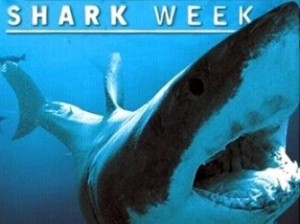Are you a Quiet Speculation member?
If not, now is a perfect time to join up! Our powerful tools, breaking-news analysis, and exclusive Discord channel will make sure you stay up to date and ahead of the curve.
You’re at a local event, maybe a FNM or maybe a big prerelease. You’ve brought your trade binder and you’d like to get some cards for a deck you want to build, so you’re looking around for other traders. A guy walks by, pulling a suitcase; he turns and says “trades?”
You happily sit down and page through each others’ binders. He pulls out cards from your binder as you slowly flip through his. He’s got Jaces positioned at the front to tempt you. You two get to talking, especially after you have found some cards you need for your deck. However, as you get to negotiating, you realize that this guy is attempting at every point to rip you off. He wants to trip you up on valuation, he tries to get throw-ins that are better than bulk junk, he uses different buy and sell points all along the way in an attempt to get you to part with your cards.
Maybe you do trade, maybe you don’t. More likely, you do the trade and you feel bad afterward.
Nobody should feel run-over after a trade, and this week’s article is about how you can deal with trading sharks.
If You Feel Unsure About it, Walk Away!

This is the foremost trading rule, and people violate it all the time. It happens for many reasons, mostly due to social pressure. Skillful sharks are able to put you at ease about trading away that Gideon for a pile of crap. They can impress you and make you want to give them a better deal, selling you on the idea that you get to trade with a “big name” in the game. You must realize that this is going on, especially if you are not someone who tries to trade up all the time. The reality is that most people who are trading are looking for cards that will go in a pre-existing deck or one that will soon happen. If you need the cards and someone is trying to rake you over for them, you can probably get a better deal somewhere else in the room.
Spotting Sharks
Trading well takes a lot of energy and research, and if you’re like me, you might only trade now and then, and only trade for things you immediately need. I don’t like to do the song and dance of trying to get the person across the table to stop trying to screw me over, so I developed some warning signs that I look for so I don’t waste my time with someone trying to hustle me.

1. If someone has a LOT of cards on them, they are probably trying to trade for value all the time and unless you want to deal with that, skip them (unless you are sure that they have a card that you need).
2. If someone starts off by looking through your binder and pointing at each card and saying “what do you value this at?” then you are talking to someone who is trying to spot undervalued cards in your binder. That is to say, they are trying to get what you have for less than it’s worth. This point must be contrasted with someone who, every now and then, says “is this for trading? What would you want for it?” When people use words like “value,” it’s a tip-off that they are trying to trade up and you have to choose whether you want to deal with that.
3. If I say “would you trade this?” on something like Aether Vial and the other person says “yeah, I put that at $9,” I might pull out my own Aether Vials and ask if they want to trade for them. If the response I get is “I would trade for yours at $4” then I will say “I don’t think we’ll be able to come to an agreement on anything, thanks for your time.” This behavior must be punished. A backpack trader might legitimately want to make a profit, sure, but when you see discrepancies like this, you have to consider that it’s someone who wants all the price-point benefits that come with running a Magic store without having to pay for rent, lights, advertising or other business expenses [like cleaning up after FNM... -kbr, begrudgingly] I don’t like to subsidize these people if they make themselves out to be traders and not dealers. There’s no excuse for valuing my cards lower than your exact same cards if we’re sitting down between rounds to trade. You are going to work hard for every card you trade for, and you will probably walk away from the trade wondering if you screwed up. Though we expect QS readers to be up on card prices and maybe do a little sharking of their own, we don’t expect readers to do trades that we know are foolishly lopsided.
The great thing about this little test is that you can use it early on when flipping through someone’s binder to see if they are going to be more trouble than you want to deal with.
Understanding Why You Want to Trade
The one piece of homework you have to figure out is why you want to sit down and trade on a particular night. If you want to trade cards without knowing why, you might end up giving up some really juicy (and useful) cards for flashy pimp cards for your EDH. Do you want to trade away a Vengevine for a foil Memory Jar that goes in your EDH and gets played once a year in a Vintage deck? Sometimes, you want to deal with sharks, since they often have a big pile of cards that you want a crack at. If you want to upgrade copies of your cards, you need to seek out the guys with big binders. On the other hand, if you are looking for some dual lands for your Standard deck, many people will have what you are looking for at a decently-sized event, and you should not feel pressured into trading with someone for a card that is not particularly scarce.
I understand that these tips will probably make trading life harder for many QS readers (and editors, sorry Kelly!) but they are also useful for the sharky readers. If you really want to test your trading skills, put them up against a suitcase trader and see what you walk away with! In the end, you never want to make a trade that you are unhappy with, so be honest with yourself and know that you can, and should, walk away from trades at times.





Pretty spot-on. I don't know that I'd call myself a shark, but I walk into every trade to trade up in value. One thing I stress to my trade partners is that there are no hard feelings if they want to walk away at any point because we can't agree on prices.
This article is really good information for those people just getting into the trading game.
This is the reason why I love QS. Here we have all the sides in a trade.
I just think a good shark must know when he should lose value trading.
Hence why I won't buy any fancy suitcase or roll away. Good ole backpack, nothing beats backpack.
Yeah great article. My current approach to trading is that cards are like stocks and if you trade away and for the right ones you dont have to rip people off to make profit trading- its too common a myth. For example, I will trade primevil titans for force of wills till the end of time because I know force will hold value better, but im not ripping anyone off valuewise and who knows maybe that titan will go to 80 bucks someday lol.
Good stuff.
My only problem is with the 9$/4$ example.
I am hardly a shark, but I do trade for value while looking for what I want. With that in mind there have been plenty of times where I am willing to trade for something I don't need, but won't be giving full value for it because I am ONLY taking to make a profit. So in this example my mindset would be this:
If you want my Vial I will trade it at full value. But if you want me to do you the favor of trading for yours when I don't need them then I am not going to give you full value. Seems like common sense to me and I am upfront with my trade partner about it. Why would I pay full price for something I don't need?
People who try to just iPhone everything, and expect cards to have an absolute value, don't understand the nature of the game. Value is inevitably variable based on perception.
I disagree with equating asking someone "what do you value that at" with making someone a Shark. Many times, values will go down on a whole host of cards at once, during shifts in a metagame, or once Prerelease-mania wears off. Asking that question lets you know if your partner realizes that, or if they're still trying to get the old value on a card that's tanked. Lotus Cobra, for example, has been worth anything from 25 to 8 dollars(currently 13.50, http://www.blacklotusproject.com)–if you still value yours higher than 15, I'm not going to bother pulling yours out to trade. Valuing cards too highly (or purposely using outdated valuations/certain websites) is also a sign of a Shark, to me. By asking your valuations on your/my card, I can quickly see if we're both reasonable, or not going to be able to trade.